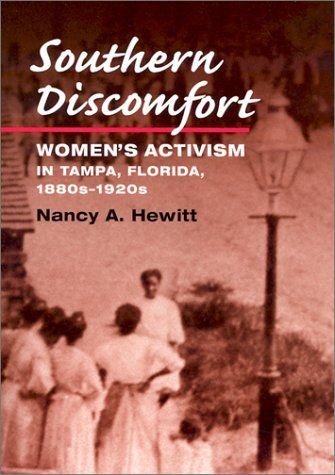
Southern Discomfort Women's Activism in Tampa, Florida, 1880s-1920s
Vitally linked to the Caribbean and southern Europe as well as to the Confederacy, the Cigar City of Tampa, Florida, never fit comfortably into the biracial mold of the New South. In Southern Discomfort, the esteemed historian Nancy A. Hewitt explores the interactions among distinct groups of women -- native-born white, African-American, and Cuban and Italian immigrant women -- that shaped women's activism in this vibrant, multiethnic city. Around the turn of the twentieth century, several historical currents converged in Tampa. The city served as a center for exiles organizing on behalf of the Cuban War of Independence and as the disembarkation point for U.S. troops heading to Cuba in 1898. It was the entrepot for thousands of Cuban and Italian immigrants seeking work in the booming cigar trade, and it attracted dozens of itinerant radicals eager to address locally based revolutionary clubs, mutual aid societies, and labor unions. Tampa was also home to an astonishing array of voluntary and reform organizations among black and white native-born women. Emphasizing the process by which women of particular racial, ethnic, and class backgrounds forged and reformulated their activist identities, this masterful volume recasts our understanding of southern history by demonstrating how Tampa's tri-racial networks alternately challenged and reinscribed the South's biracial social and political order.